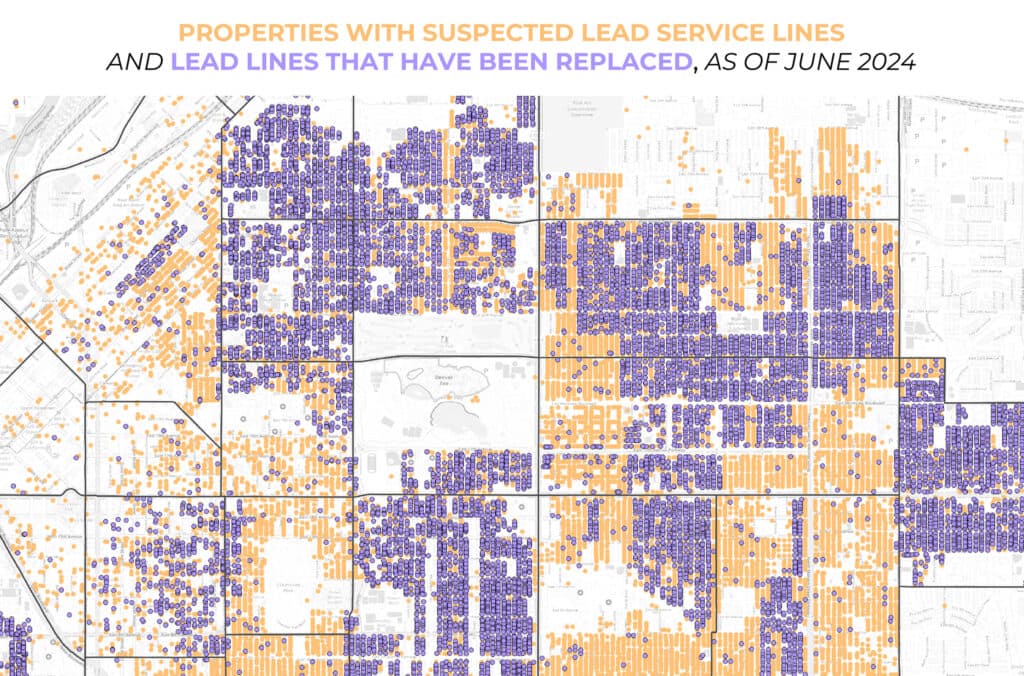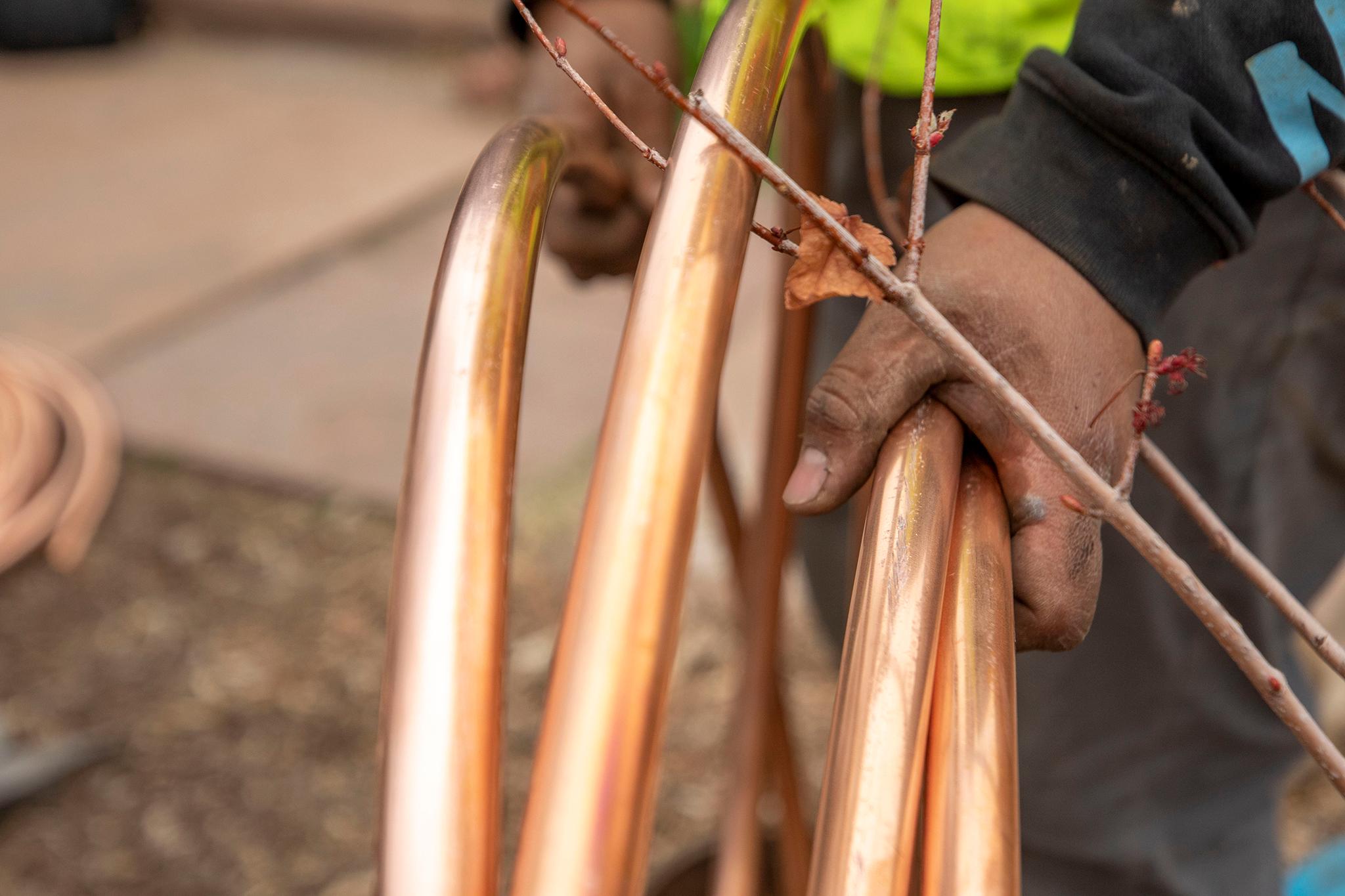In 2020, Denver Water began a 15-year-long project to remove lead pipes between their main lines and people's faucets, one house at a time.
This has been on reader Terry Cruz's mind lately. Mostly because while he's continued to receive Brita filters from the utility, he hasn't heard when they'll come around to dig into his property in Denver's Cory-Merrill neighborhood.
"What can you provide as to the update on the extremely behind schedule replacement of lead pipes for our water supply?" he wrote us. "I thought this was to have been started/completed a while ago."
Good news, dear reader: Your question was right on time for a lead pipe update.
Denver Water just released their semi-annual report on the program, which states they've replaced 27,000 pipes out of an estimated 60,000 in total. That's about 45 percent!
Jimmy Luthye, a Denver Water spokesperson, said they should be halfway done by the year's end. You can watch their progress in this handy animated map.
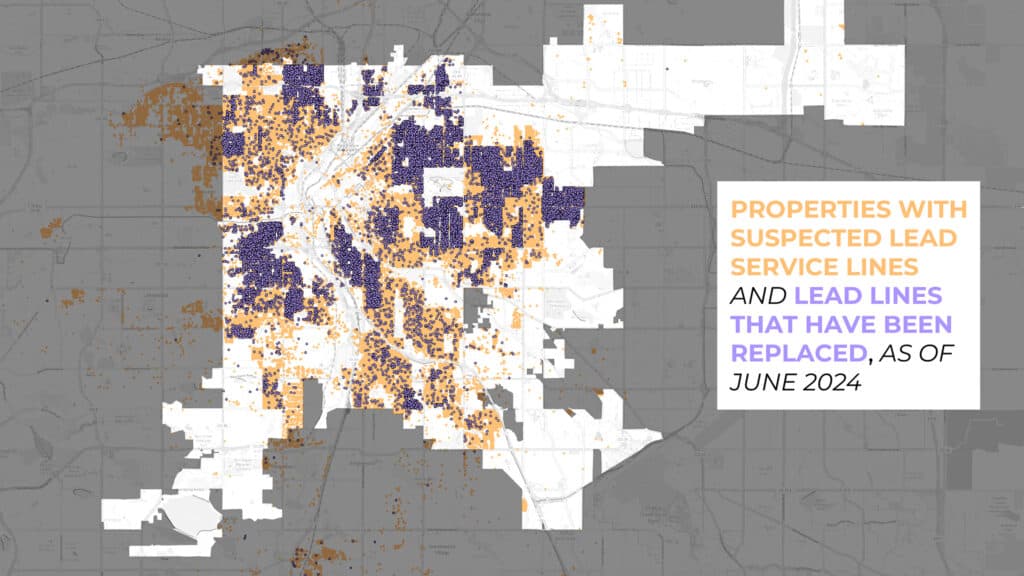
Luthye said Cruz's assertion, that this project is delayed, is incorrect. They're actually ahead of schedule.
"We have been able to accelerate in the last couple of years thanks to $76 million in federal funding from the federal bipartisan Infrastructure Investment and Jobs Act," he wrote us. "We estimate that this additional funding cut about a year and a half off the overall project timeline, which we originally planned to take 15 years to complete."
He said they should be fully finished by 2035.
As of June 2024, the utility has replaced more pipes in North Park Hill than any other neighborhood, with over 2,000.
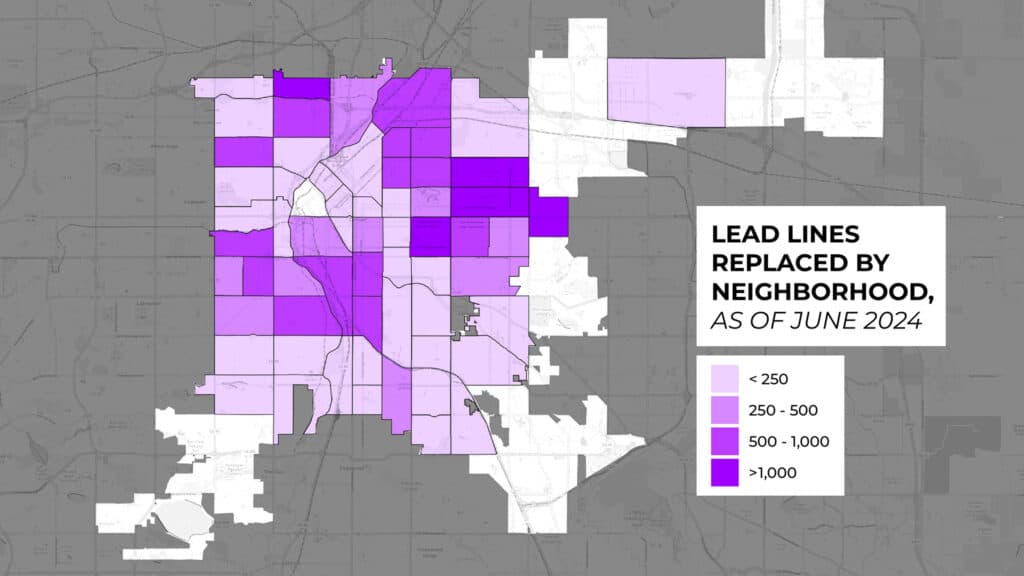
Congress Park, East Colfax and South Park Hill have also top the chart, each with over 1,000 replacements apop.
Luthye said his colleagues are still crunching numbers on completion by neighborhood, but their preliminary data shows seven neighborhoods were about 90 percent finished as of March 2024.
Those are: Baker, Barnum West, City Park, Clayton, East Colfax, Elyria Swansea, Skyland and Whittier.
Bad news, dear reader: We don't know when Denver Water will reach your lead pipes.
Luthye said the utility will share their plans for 2025 this autumn, so keep a lookout! (We will, too)
Generally, Luthye said they pick neighborhoods and blocks based on a few factors:
- The density of lead pipes that need replacing
- Whether medical systems are detecting elevated lead levels in blood in specific areas, like those with a lot of kids
- Where those factors compound with poverty
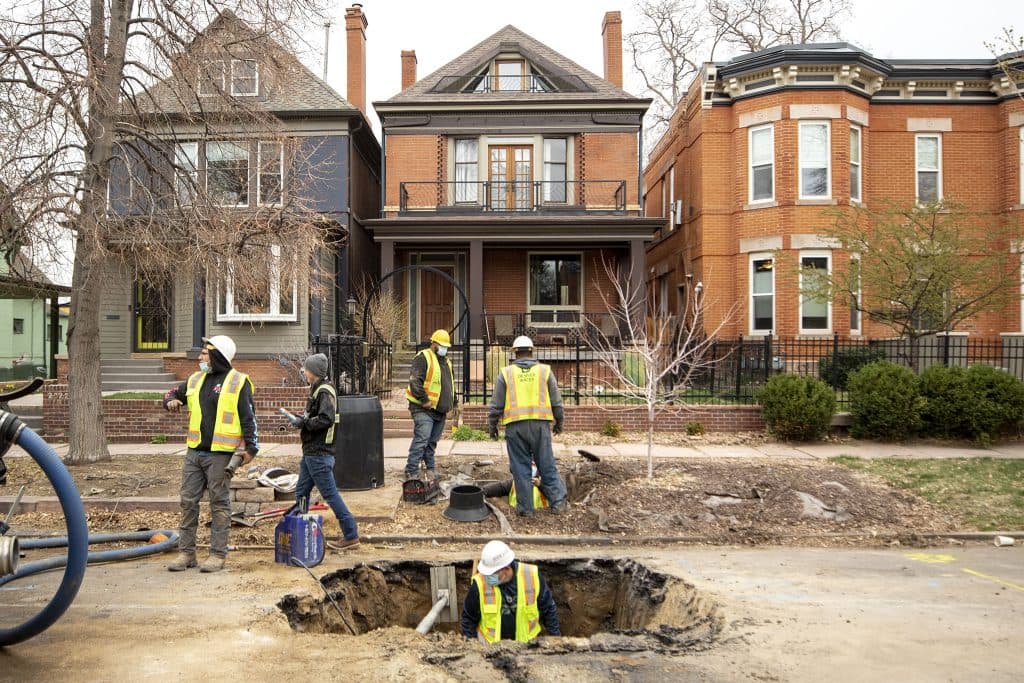
Heather Arterburn lives in Athmar Park, on a block where Denver Water has replaced pipes for every house.
She doesn't have little kids living with her, so she wasn't super concerned about the lead present before they completed their work.
Now that they're done, she added, she's continued to use a water filter.
"I found that, after using the pitcher for so long and then switching back, it almost tastes like drinking from a hose," she chuckled.
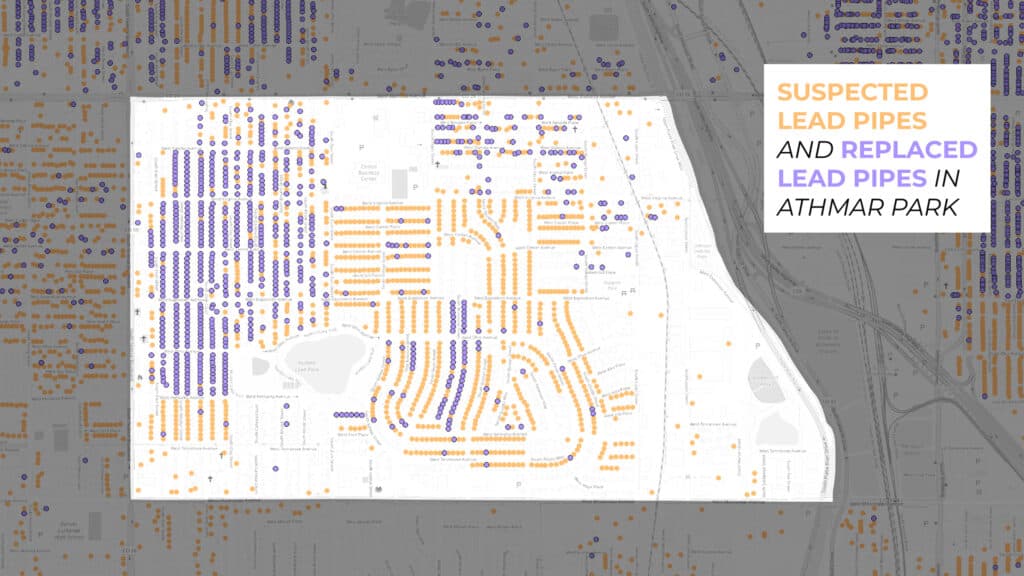 Data Source: Denver Water
Data Source: Denver Water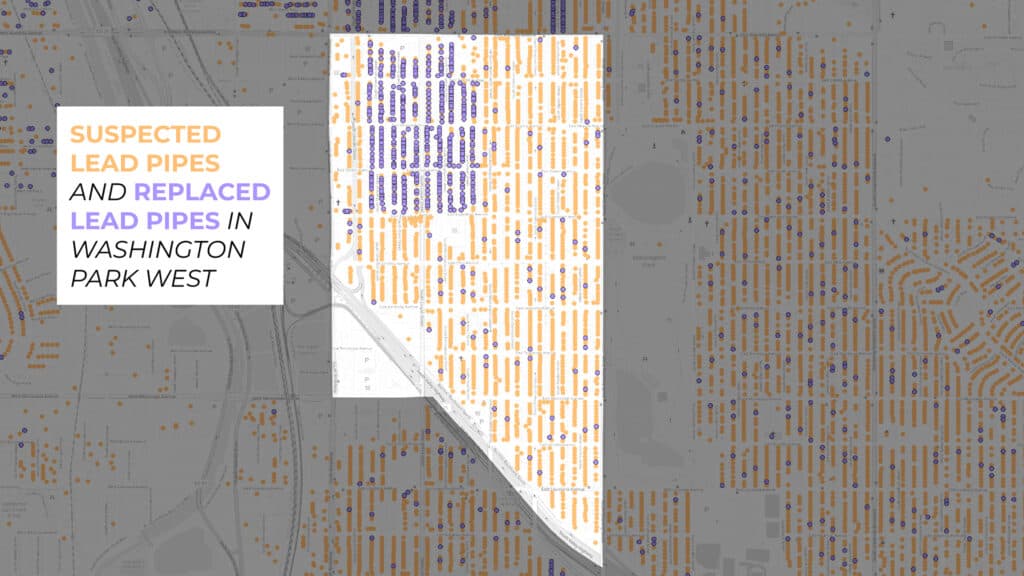 Data Source: Denver Water
Data Source: Denver Water
But other people we spoke to shared Cruz's concern. One Athmar Park resident told us he was "relieved" after his pipes were replaced this year.
Marti Richardson, who lives near Washington Park, is still waiting for her turn. Like Arterburn, she's not in a panic about this. But she's still hoping to see a Denver Water crew before too long.
"Surely, it's not a comfortable feeling, and I wish they'd hurry up and replace them," she said. "I did see when they were replacing [pipes] several blocks over, so I keep waiting for, 'When is it our turn? When is it our turn?'"
